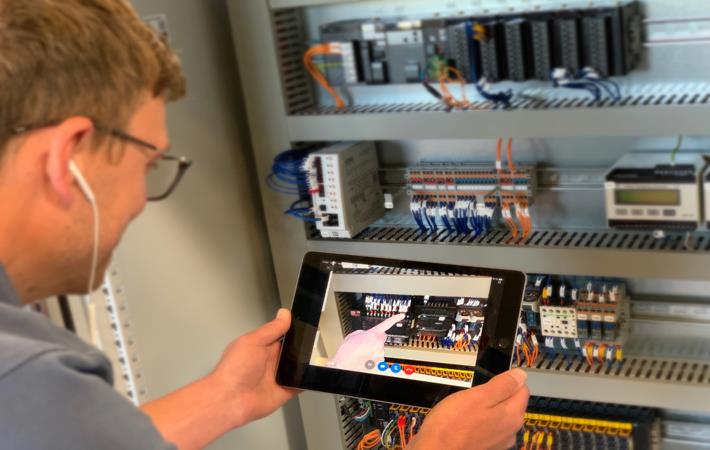Interviews
TMAS supports digital strategies in response to COVID-19
08 Jul '20
3 min read

Pic: TMAS
The members of TMAS, the Swedish textile machinery association, have adopted a range of new strategies in response to the COVID-19 pandemic, aimed at assisting manufacturers of textiles and apparel to adjust to a new normal, as Europe and other regions emerge cautiously from lockdown. TMAS provides the most creative machinery solutions for textile industry.
“Many European companies have been forced into testing new working methods and looking at what it’s possible to do remotely, and how to exploit automation to the full, in order to become more flexible. Others have been taking risks where they see opportunities and there’s a new sense of solidarity among companies. It’s extremely encouraging, for example, that over five hundred European companies from across our supply chain are reported to have responded to the shortages of facemasks and PPE – protective personal equipment – by converting parts of their sites or investing in new equipment,” TMAS secretary general Therese Premler-Andersson said in a press release.
Amongst them are TMAS members of the ACG group, who quickly established a dedicated new nonwovens fabric converting and single-use garment making-up plant to supply to the Swedish health authorities. From a standing start in March, this is now producing 1.8 million square metres of converted fabric and turning it into 692,000 finished medical garments each month.
Automated solutions have opened up many possibilities for remote working during the pandemic. Texo, for example, the specialist in wide-width weaving looms for the paper industry, was able to successfully complete the build and delivery of a major multi-container order between April and May.
Svegea of Sweden, which has spent the past few months developing its new CR-210 fabric relaxation machine for knitted fabrics, has also successfully set up and installed a number of machines remotely, which the company has never attempted before.
“The pandemic has definitely led to some inventive solutions for us and with international travel currently not possible, we are finding better methods of digital communication and collaboration all the time,” Svegea managing director Hakan Steene said.
“We have now proven that e-meetings and virtual collaboration tools are effective. Baldwin implemented a home office work regime from April with only production personnel and R&D researchers at the workplace. These past few months have shown that we can be just as effective and do not need to travel for physical meetings to the same extent that was previously thought to be necessary,” Pär Hedman, sales and marketing manager for IRO said.
The many garment factories now equipped with Eton Systems UPS work stations, designed to save considerable costs through automation, have meanwhile benefited from the unintentional social distancing they automatically provide compared to factories with conventional banks of sewing machines.
“These companies have been able to continue operating throughout the pandemic due to the spaced nature of our automated plant configurations. The UPS system has been established for some time, but planned spacing has proved an accidental plus for our customers – with improved productivity,” Eton systems business development manager Roger Ryrlén said.
“Many European companies have been forced into testing new working methods and looking at what it’s possible to do remotely, and how to exploit automation to the full, in order to become more flexible. Others have been taking risks where they see opportunities and there’s a new sense of solidarity among companies. It’s extremely encouraging, for example, that over five hundred European companies from across our supply chain are reported to have responded to the shortages of facemasks and PPE – protective personal equipment – by converting parts of their sites or investing in new equipment,” TMAS secretary general Therese Premler-Andersson said in a press release.
Amongst them are TMAS members of the ACG group, who quickly established a dedicated new nonwovens fabric converting and single-use garment making-up plant to supply to the Swedish health authorities. From a standing start in March, this is now producing 1.8 million square metres of converted fabric and turning it into 692,000 finished medical garments each month.
Automated solutions have opened up many possibilities for remote working during the pandemic. Texo, for example, the specialist in wide-width weaving looms for the paper industry, was able to successfully complete the build and delivery of a major multi-container order between April and May.
Svegea of Sweden, which has spent the past few months developing its new CR-210 fabric relaxation machine for knitted fabrics, has also successfully set up and installed a number of machines remotely, which the company has never attempted before.
“The pandemic has definitely led to some inventive solutions for us and with international travel currently not possible, we are finding better methods of digital communication and collaboration all the time,” Svegea managing director Hakan Steene said.
“We have now proven that e-meetings and virtual collaboration tools are effective. Baldwin implemented a home office work regime from April with only production personnel and R&D researchers at the workplace. These past few months have shown that we can be just as effective and do not need to travel for physical meetings to the same extent that was previously thought to be necessary,” Pär Hedman, sales and marketing manager for IRO said.
The many garment factories now equipped with Eton Systems UPS work stations, designed to save considerable costs through automation, have meanwhile benefited from the unintentional social distancing they automatically provide compared to factories with conventional banks of sewing machines.
“These companies have been able to continue operating throughout the pandemic due to the spaced nature of our automated plant configurations. The UPS system has been established for some time, but planned spacing has proved an accidental plus for our customers – with improved productivity,” Eton systems business development manager Roger Ryrlén said.
Fibre2Fashion News Desk (GK)
Popular News
Leave your Comments
Editor’s Pick
Yohan Lawrence
Joint Apparel Association Forum (JAAFSL)
Sunil Kharbanda
Trezix Software Pvt Ltd
Alex and Zofia Torun-Shaw
Brand - Laird Utility
































-Ltd..jpg?tr=w-120,h-60,c-at_max,cm-pad_resize,bg-ffffff)





.jpg?tr=w-120,h-60,c-at_max,cm-pad_resize,bg-ffffff)
.jpg?tr=w-120,h-60,c-at_max,cm-pad_resize,bg-ffffff)






